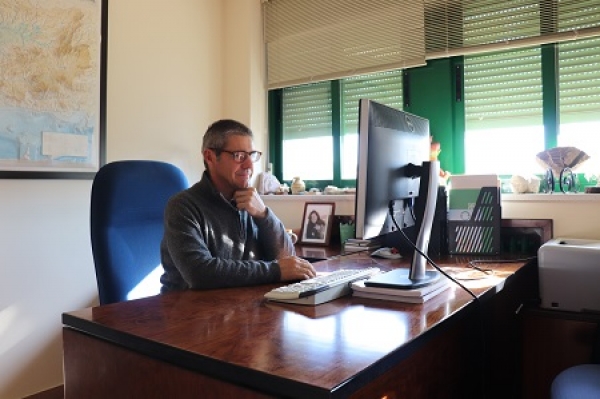Opening the tap and drinking a glass of water without it entailing a serious risk to health. In Spain and other European countries this is an everyday act that goes unappreciated, but in China it is a real luxury, available to few. Most citizens of the Asian giant do not dare to drink tap water, due to its severe pollution figures. Frenetic industrialisation, the increase in population, and the rapid development the country has undergone in recent decades have given rise to a situation in which, according to official data, about 80% of groundwater is contaminated, along with 70% of rivers and lakes. Compounding this is the aridity of the northern area of the country, home to some to 400 million people. The result is a serious water crisis that Chinese and European governments are working against the clock to address.
One of the examples of these pro-active policies is the PIRIRAL research project, an international cooperation effort whose main objective is the decontamination of water in rural areas through the transfer of knowledge from Europe to the Asian country. The initiative, on which the University of Cordoba (UCO) is participating through its Department of Economy, Sociology and Agrarian Policy, is part of a line of collaboration commenced in 2012 between the European Union and China –China EuropeWaterPlattform (CEWP)– that endeavours to maintain fluid contact and good international relations between two key economic powers on the 21st century's geopolitical chess board.
UCO Professor of Agricultural Economics and Project Director Julio Berbel underscored that one of the work units will seek to transfer effective methods to decontaminate aquifers and groundwater, the main source of domestic drinking water in the country's rural areas. This will be the task of the project's Danish partners, a specialised research group with extensive experience in this type of method, as in Denmark most of the drinking water for human consumption comes from subsoil.
Another of the project's teams, led by the University of Córdoba, will work on the improvement of irrigation systems' efficiency techniques, with the aim of making water available for urban use. According to Berbel, Spain is the country with the highest percentage of modernised irrigation (trickle and others) in the world. These types of systems boast the advantage that they can be mechanised and automated depending on the needs of the crop and the land. If properly optimised, they can slash water use by up to 40%. To this end, the team will try to transfer European experiences to China, with the aim of modernising 600,000 hectares of irrigated land, and saving water in the Yellow River basin, the sixth longest river in the world; and, especially in the north of the country, which suffers severe droughts and excessive extractions. In addition, two thirds of its water goes unused for consumption due to pollution-related problems.
As a result of this contamination, the Asian giant is a leading consumer of bottled water, an industry that damages the environment due to its generation of plastic and the ensuing accumulation of garbage. In view of the fact that almost 20% of the world's population is Chinese, the future of this country could greatly impact the future of the world, such that the resolution of its water crisis constitutes a true global challenge.
Â


